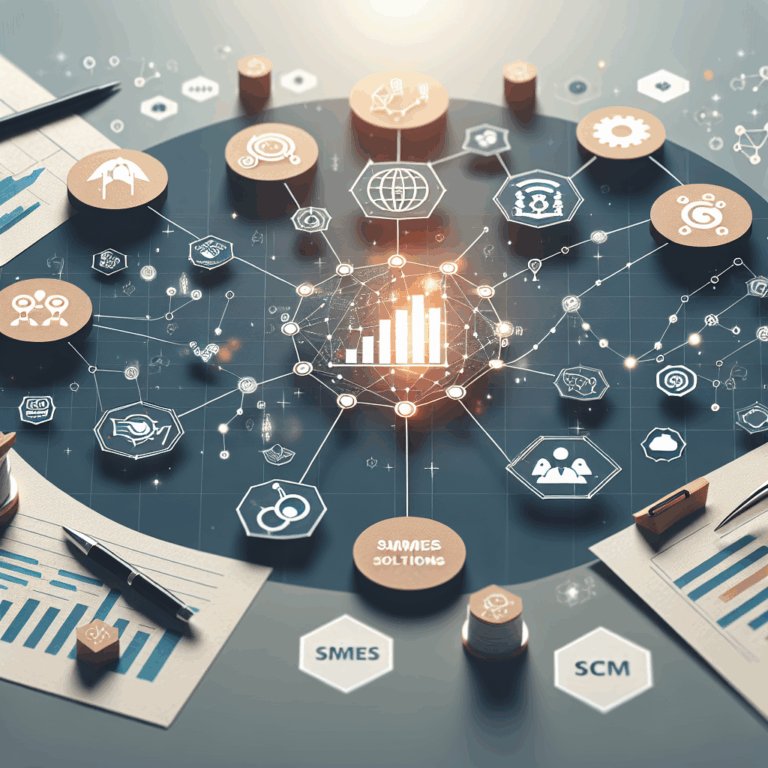
The Intrigue and Success Unveiled: The Top 5 erp Systems in the Business World
Introduction:
In an era driven by technology and the overwhelming need for streamlining operations, Enterprise Resource Planning (ERP) systems have proven to be game-changers for businesses worldwide. These powerful tools integrate various business functions into a single cohesive system, enhancing efficiency and productivity. Among the plethora of erp systems available globally, there are five that stand out as the most widely adopted and instrumental for businesses of all sizes. So, join us on a captivating journey as we unravel the top five erp systems used in the business world – providing you with insights and answers to questions you may have.
1. SAP erp:
Heading this prestigious list is SAP erp, trusted by large corporations and small businesses alike. SAP erp packs a punch with its wide range of functionalities, including finance, supply chain management, human resources, and customer relationship management. This robust system provides real-time data, enabling businesses to make well-informed decisions. SAP erp‘s implementation may seem complex, but its scalability and integration capabilities make it an unrivaled choice for companies aiming to drive growth and stay ahead in the ever-changing business landscape.
2. Oracle erp Cloud:
Stepping up the game is Oracle erp Cloud, which offers a comprehensive suite of applications tailored to meet business requirements with utmost precision. Oracle erp Cloud’s user-friendly interface makes it accessible for all, reducing the learning curve for employees. The system’s key strengths lie in its flexibility and scalability, allowing businesses to seamlessly incorporate industry-specific modules and adapt to evolving market dynamics. Furthermore, Oracle erp Cloud’s seamless integration with other applications and data sources consolidates operations, resulting in improved collaboration and decision-making processes.
3. Microsoft Dynamics 365:
Next on the list, we have Microsoft Dynamics 365, a powerful erp system that has gained immense popularity due to its seamless integration with other Microsoft tools. This cloud-based solution leverages artificial intelligence and machine learning, revolutionizing data analysis and predictive analytics. Microsoft Dynamics 365 provides businesses with a comprehensive view of their customers, enabling targeted marketing and fostering customer loyalty. With its mobility and accessibility, this erp system empowers businesses to stay agile and responsive to market demands, giving them a competitive edge.
4. Infor CloudSuite:
Infor CloudSuite is an industry-specific erp system that caters to a wide range of businesses, including manufacturing, distribution, healthcare, and more. This cloud-based solution consolidates core business functions into a single platform, reducing operational complexities. Infor CloudSuite’s deep data analytics and intelligence capabilities enable businesses to optimize operations, reduce costs, and enhance customer satisfaction. Its industry-specific modules and tailored workflows make it an ideal choice for organizations seeking best-in-class processes tailored to their unique needs.
5. NetSuite erp:
Last but certainly not least is NetSuite erp, a cloud-based solution that boasts a complete suite of applications for businesses of all sizes. What sets NetSuite erp apart from the others is its agility and scalability, allowing businesses to add functionality and handle increasing workloads effortlessly. This erp system’s holistic approach encompasses financial management, supply chain, inventory, and customer relationship management, providing businesses with a unified approach to operations. The system’s ease of use and flexibility make it an ideal choice for companies seeking seamless performance and growth.
FAQs
1. How do erp systems benefit businesses?
ERP systems streamline operations, eliminate manual data entry, enhance communication and collaboration, improve decision-making, and provide real-time insights. They automate processes, leading to increased efficiency, reduced operational costs, and improved customer satisfaction.
2. Can erp systems be customized?
Yes, most erp systems offer customization options to adapt to a business’s unique needs. Whether it’s adding industry-specific modules or tailoring workflows, ERP systems can be tailored to optimize day-to-day operations.
3. How long does it take to implement an erp system?
The implementation timeline varies based on the organization’s size, complexity, and requirements. On average, an erp system implementation can take anywhere from six months to a year, but it is crucial to establish realistic expectations based on the specific business needs.
4. How secure are erp systems?
ERP systems are built with robust security features to safeguard critical business data. These systems implement strict access controls, encryption protocols, and regular security updates to protect against cyber threats and unauthorized access.
5. Are erp systems suitable for small businesses?
Absolutely! ERP systems offer significant benefits to small businesses by streamlining processes, ensuring compliance, and enhancing customer satisfaction. Additionally, ERP system scalability enables businesses to adapt and grow as needed.
Conclusion:
As businesses strive for enhanced efficiencies and smoother operations, ERP systems have become the cornerstone of success. SAP erp, Oracle erp Cloud, Microsoft Dynamics 365, Infor CloudSuite, and NetSuite erp emerge as the top five choices for companies aiming to optimize their processes, improve decision-making, and stay competitive. So, embrace the era of technology and unleash the power of these erp systems to take your business to new heights!

















